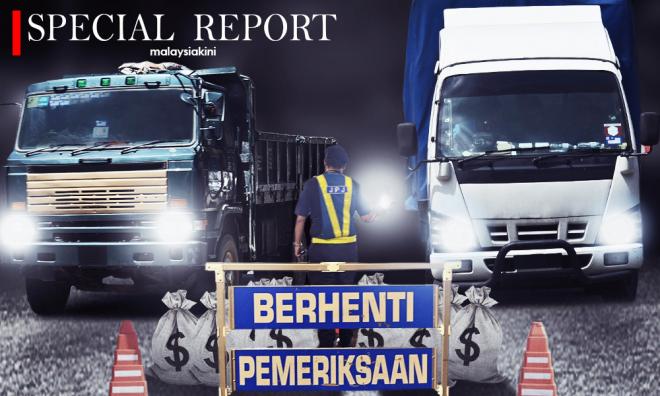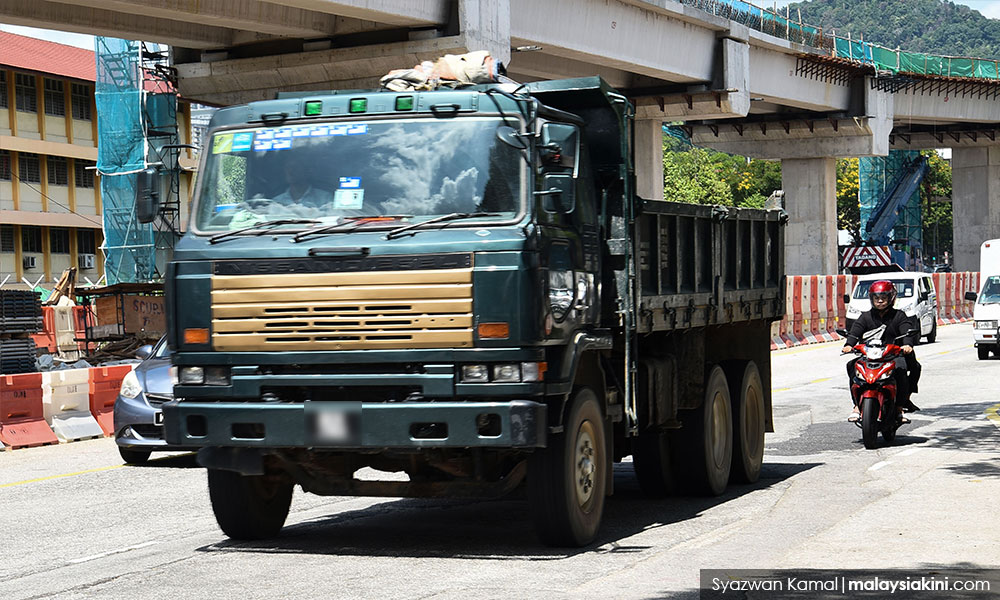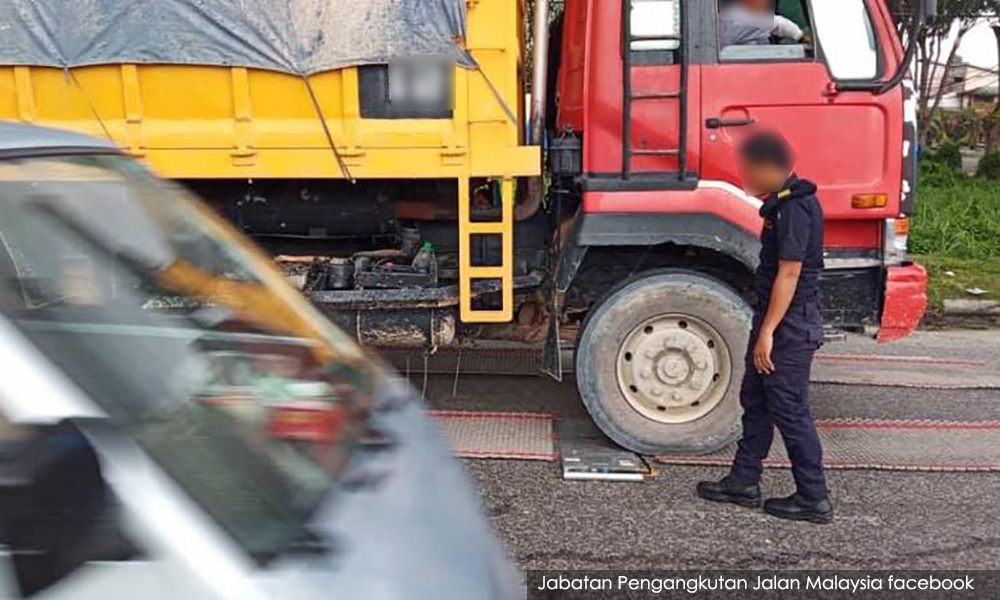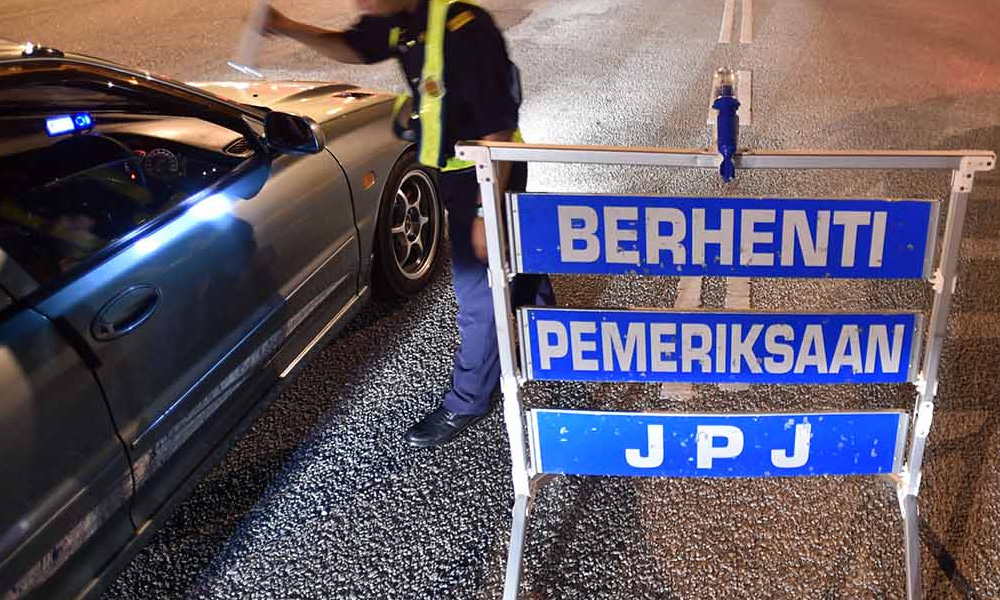
SPECIAL REPORT | In April last year, the Penang Road Transport Department (RTD) was crippled after the MACC picked up 46 enforcement officers, exposing a corruption racket that not only shocked the public but also struck fear among corrupt officials in other states.
The officers in other states were so worried that they asked logistics companies to stop bribing them, for fear that they, too, will come on the MACC's radar.
But almost a year after the mass arrest, it is back to business as usual for these officers, who have even demanded that they are compensated for the months during which the bribes stopped flowing.
Ah Ching (not her real name), a secretary of a logistics company, said they began to demand payment again in July last year, three months after the mass arrest in Penang.
"They were initially afraid, all the transfers of money were halted for two months (May and June last year).
"But they insisted that the July payment should be doubled as reimbursement for the previous months.
"They threatened that our lorries may get into trouble (if we don't comply)," she told Malaysiakini.
Ah Ching is a company secretary but has found herself in an unenviable position of coordinating payments to corrupt RTD officers.
The bribes are paid to enforcement officers to turn a blind eye to infractions, usually for overloading lorries, or to tip-off on impending operations.
The payments can be ad hoc, where companies will pay up immediately when their lorries run into trouble at roadblocks - or monthly payments that will entail "protection" from the enforcers.
Intermediary accounts used to cover tracks
Malaysiakini has viewed records of transactions as well as WhatsApp messages from corrupt enforcers demanding payment.
"How many millions will you transfer this month? After the transfer, please WhatsApp us," read one message.
After Ah Ching banked in RM1,000 to the officer, another Whatsapp message came in: "Okay, thank you. Remember to delete (the message)".
She said such "warm greetings" would normally come in at the end of the month.

The transaction record for one firm in September alone saw 18 payments totalling RM21,300, which were made to district RTD officers in Selangor, Negeri Sembilan, Malacca and Johor. Each payment ranged between RM300 and RM6,000.
Ah Ching said the recipients belong to agents, relatives or friends of corrupt RTD officers who make it a point not to have money deposited directly under their names to avoid detection.
Malaysiakini also ran checks on the bank accounts and their owners and found them to be legitimate.
The amounts can vary from a few hundred ringgit to thousands of ringgit, depending on location.
Law abiders harassed
The givers and takers are part of a corruption problem that has become institutionalised, but some logistics companies have tried to do the right thing by going by the book.
Ah Siong (not his real name) has 200 lorries under his company and strictly follows the maximum weight of 51 tonnes.
However, in a corrupt system, being a law-abiding citizen does not necessarily pay as his company is subjected to harassment.
"We can't escape harassment. The RTD officers will still accuse us of overloading and ask for weighing," he told Malaysiakini.
The weighing machines are available at several fixed stations (stesen timbang) but the weighing process takes time which could result in late delivery of the consignment.
Ah Siong said on one occasion, the RTD officers insisted on weighing 10 of his lorries, resulting with his company missing the delivery deadline, causing monetary loss and damage of goodwill with his consignees.
"They will solicit for a bribe during the weighing and checking... If anybody pays a 'monthly fee', someone will appear and solve the problem, so we pay the monthly fee.
"If you don't pay the monthly fee, some officers will make your life harder by claiming that this or that is against the law. In the end, all they want is money," he said.
Apart from the monthly bribes, some RTD officers may also demand more ad hoc payments at roadblocks.
'Bribe, then claim'
Lorry driver Muthu (not his real name), who has been transporting vegetables and fruits between Cameron Highlands and the Selayang wholesale market in Selangor for 10 years, admitted that bribing RTD officers is a norm in the industry.
He said during harvest seasons, vegetables and fruits must be transported to their destinations without delay to command a good price for "fresh" produce, and the lorries carrying them tend to be overloaded.
Muthu said these lorries will then become targets to solicit bribes, adding that he thought it was better to kawtim (settle) instead of inviting trouble for his employer.
The practice is that lorry drivers would claim from their companies as expenses for what they paid to the enforcers.
"Sometimes there will be an operation at 1am or 2am. We won't call the boss. We just pay cash and then claim from the company.
"It's either an RM300 fine and court case or RM50 to RM100 bribe. You choose," he told Malaysiakini while having a cigarette after loading his cargo.

The corruption in commercial vehicle enforcement has become endemic that officers have started to find ways to get more money than they are already receiving.
Muthu said during one incident, enforcement officers solicited bribes from him twice in a single trip.
"I received a 'fine' once in Rawang, then another in Sungai Buloh. The two places are near to each other," he said.
Squeezed for more
Echoing this, Ah Ching said enforcers have also been squeezing her company.
"We have paid them but they say the (monthly) payment is only for highways and we need to pay extra for federal routes.
"During the festive period, they will also 'eat' more as they said they need to spend more. If their head follows them during the operation, we need to also pay more," he said.
Ah Siong said some RTD officers have also sought to collect bribes in areas not under their jurisdiction.
"They are well organised. The bribes are not for one person but shared with an entire group."
He added that the officers also make an effort to hide their activities from the state and federal-level RTD officers.
"When Putrajaya sends senior officers to the ground, they will not take bribes and will issue summonses accordingly.
"But if it is a district operation, then they will dare to take duit kopi," Ah Siong said.
The bribes have essentially added to the cost of doing business.
'I can't do this anymore'
Ah Ching said the ad hoc bribes her company has to pay for each lorry, ranging from RM200 to RM300, are between 20 and 30 percent of the company's revenue.
"If a return journey and have to bribe twice, we are wasting our time and efforts (because it would be a loss). We have not discounted maintenance fee, tyre costs and drivers' wages.
"This is not including the monthly protection fee," she added.
According to one transaction record viewed by Malaysiakini, Ah Ching's company had to pay RM235,600 in bribes to RTD officers in 2018, an average of RM19,633 per month.

For the first nine months of 2019, RM116,000 was paid, an average of RM16,571 per month. The amount was lower as corrupt RTD officers, spooked by MACC's operation, had temporarily stopped collection in May and June.
It is understood that the bribes paid out amounted to nearly 30 percent of the yearly expenses of Ah Ching's company.
"Carrying the cash every day frightens me as I am afraid of being robbed. I'm suffering mentally. I don't want to do this kind of work," said the company secretary.
Ah Ching's supervisor, Onn, said the cost of rampant corruption is taking a toll on the company.
"They come to ask for money every day and treat us like cows to be milked. How much do we need to put into this endless hole?" asked Onn.
No longer willing to play ball with the racket run by corrupt RTD officers, Onn's company has been recording all the payments and will now take them to the relevant authorities.
Not easy to sack corrupt officers
However, even if the MACC conducts another mass arrest, it will still be a monumental task to clean up the RTD.
Sources who are familiar with matters of bureaucracy told Malaysiakini that due to the tedious and procedurally laborious process to dismiss an officer, those who are charged in court would normally be transferred to a desk job.
While they are assigned to minor duties, they remain part of the department and can have a negative effect, and even sabotage activities.
The sources said that the tenure of an RTD enforcement and the technical officer is normally considered a "closed service", where they can only be transferred within the department and not to other parts of the civil service.
This means they will be part of RTD indefinitely until they are sacked, which is a long process that includes appeals.
"You will still see the officer in his unit every day despite being charged.
"At best, the officer can start rumours in the unit or at worse, he can sabotage the system," said one of the sources.
The Transport Ministry and RTD director-general Shaharuddin Khalid have yet to respond to requests for comment.
Threatened with severe punishment
Apart from cleaning up the RTD, bad business practices have also contributed to perpetuating corruption in the enforcement of commercial transportation.
Road safety consultant Foong Choy Chye (below), who has been part of the vehicle engineering safety field for 35 years and was part of the 2013 Genting Highlands bus crash investigation team, said logistics companies tend to overload their vehicles to save their cost per trip.

This would allow the transporter to provide a better discount on the price per tonne that they can offer to consigners in a competitive environment.
However, Foong said, this aggressive competition environment has come at the expense of safety and compliance.
He added that it is normal for some companies to have their lorries overloaded by up to 50 percent of their permissible limit.
Foong suggested that apart from the lorry drivers and the logistic companies, consigners of goods should also be punished if a lorry is overloaded.
"If the consigner is also fined, then they will advise the logistic company (delivering their goods) not to overload," he said.
Malaysiakini understands that according to the RTD's internal policy, if a lorry is slightly overloaded, authorities will rely on the Road Transport Act 1987 to fine drivers and the logistics companies of up to a maximum of RM2,000.
However, if a lorry is severely overloaded, the RTD may invoke Sections 57 and 58 of the Land Public Transport Act 2010, where offenders will be taken to court and can face a fine from RM1,000 to RM500,000, or up to two years' imprisonment or both.
The different laws allow RTD officers to exercise their discretion, but with such powers in the hands of some enforcers, they can also be abused.
Corrupt enforcers would often invoke the Land Public Transport Act 2010 which provides for more severe punishments, even for minor infractions, intimidating logistics companies to play ball with them.
Over time, both the logistics companies and RTD become part of an institutionalised corruption racket. - Mkini


No comments:
Post a Comment
Note: Only a member of this blog may post a comment.